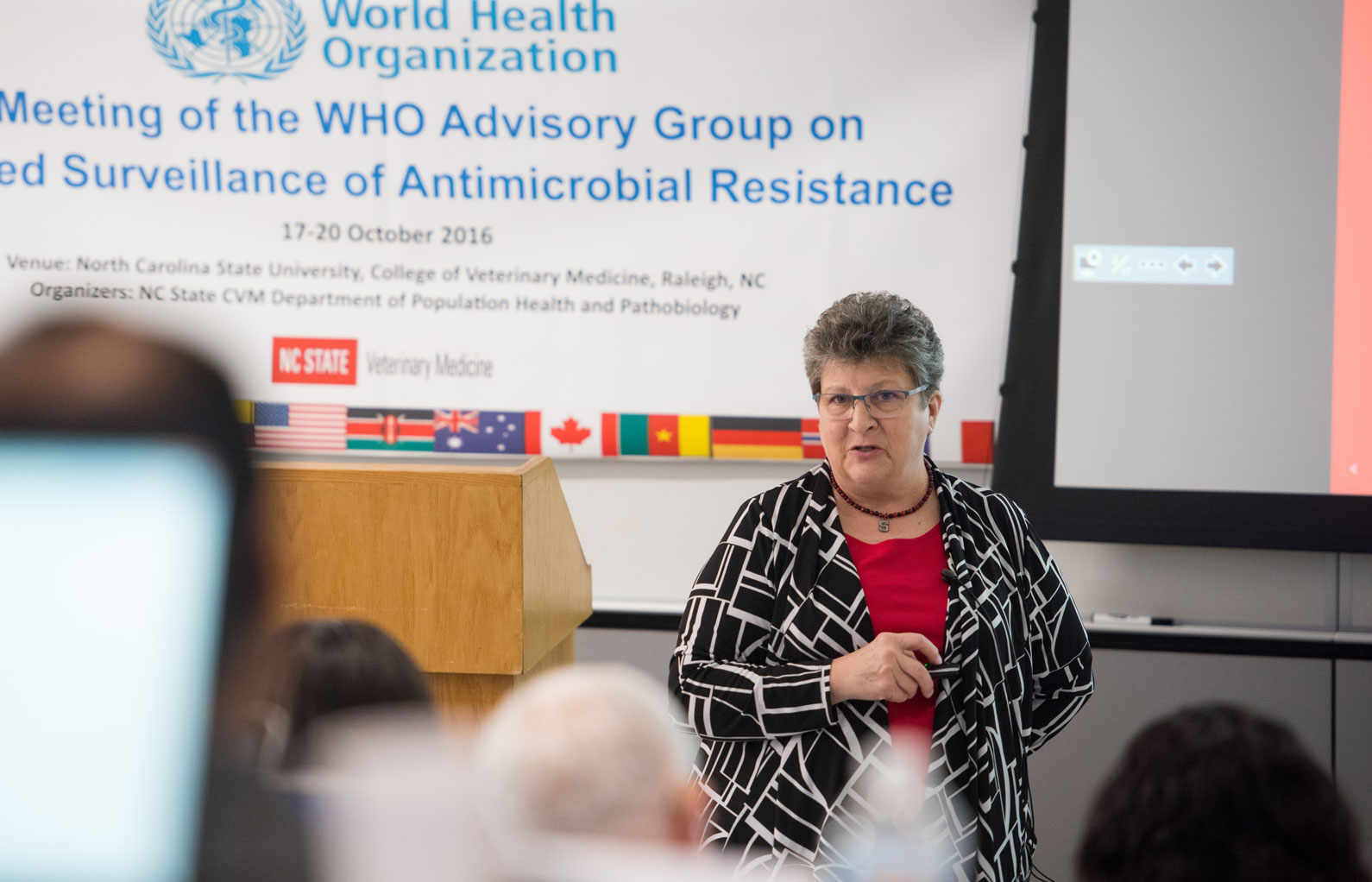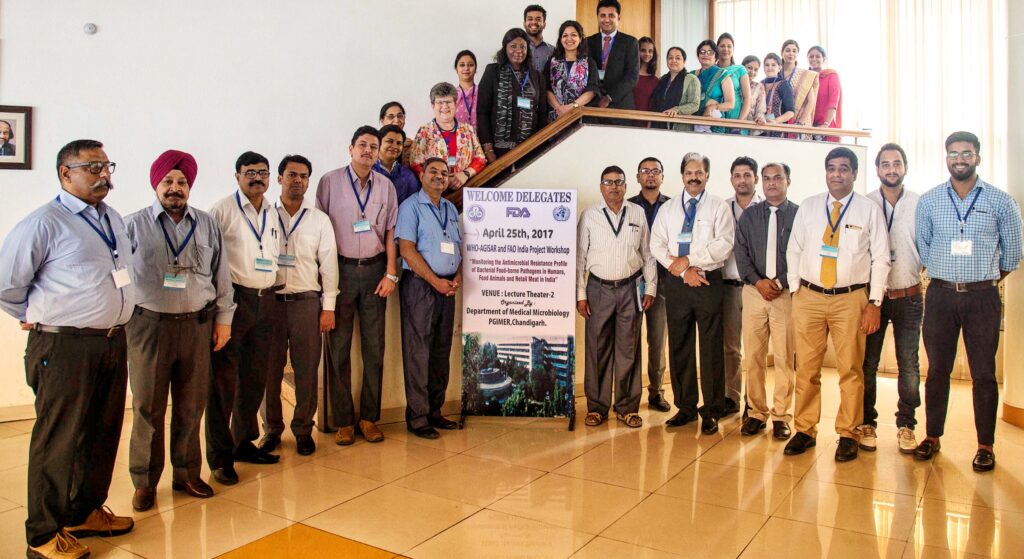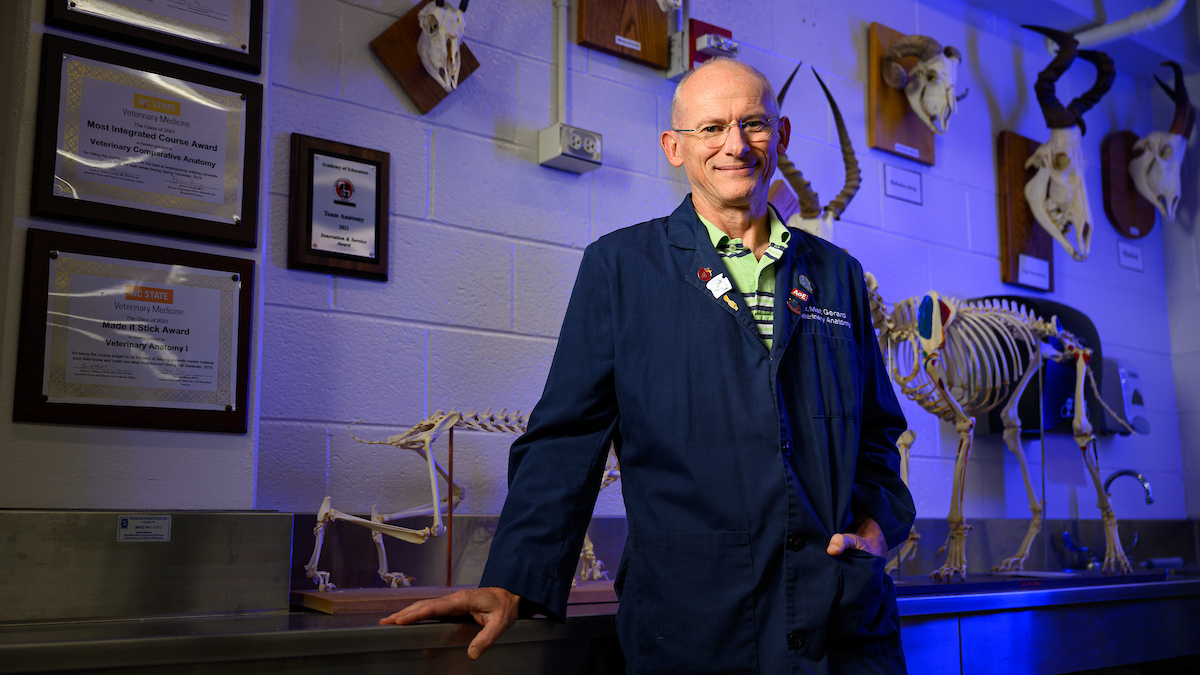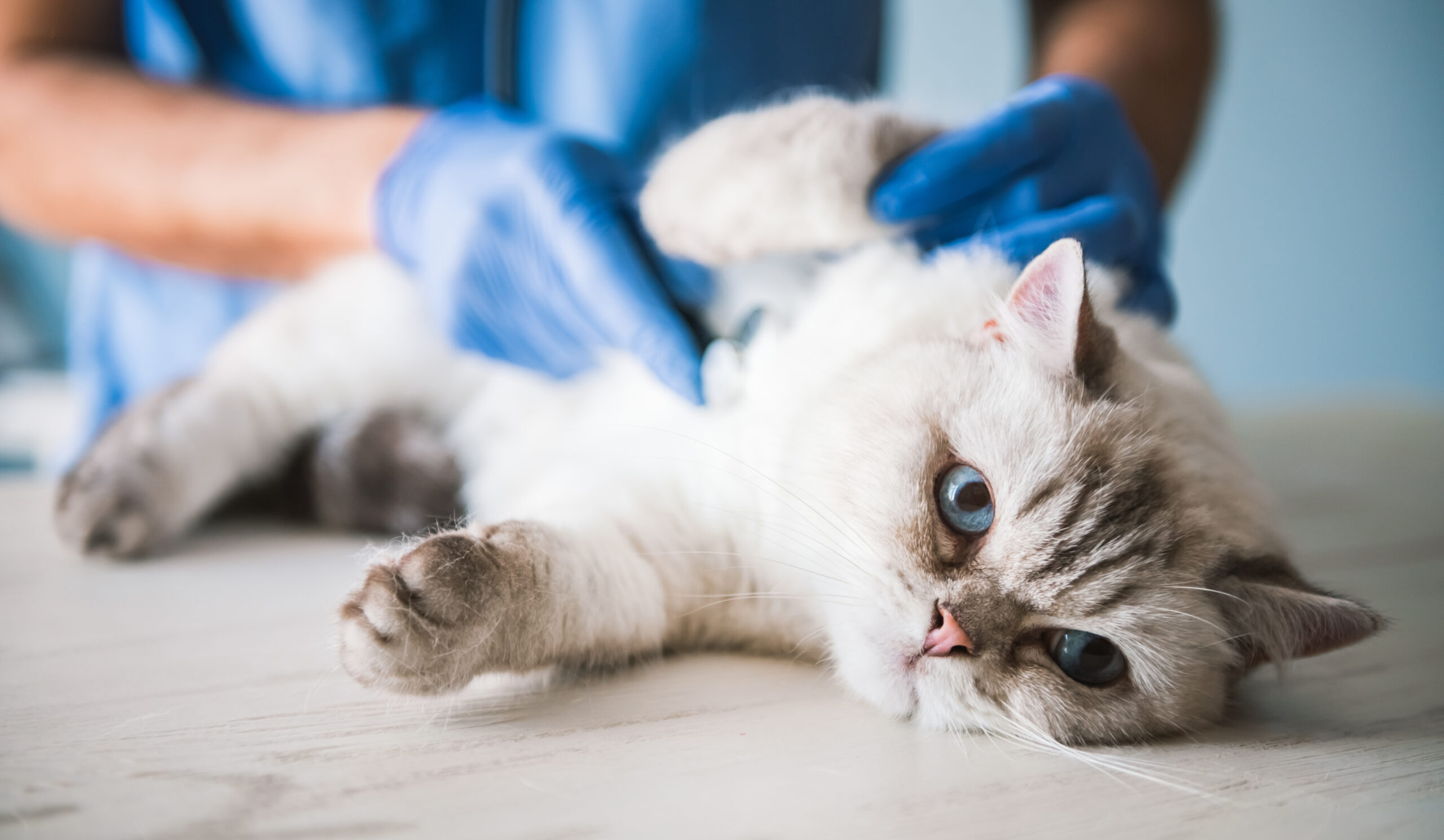Cray Honored with NC State Outstanding Global Engagement Award

Paula Cray, head of the Department of Population Health and Pathobiology at the NC State College of Veterinary Medicine and a world-leading scientist in antimicrobial resistance research and prevention, has received an Outstanding Global Engagement Award from the university.
Cray is one of three NC State professors honored this year by the university’s Office of Global Engagement. The award recognizes extraordinary accomplishments in globally engaged teaching, research, student support and program development.
“Under the leadership of Dean Paul Lunn, the CVM has made a significant investment in expanding our global interaction and education through support of global health faculty hires, strategic partnerships and research,” said Cray. “I am honored to be an ambassador of this expansion and humbled to receive this award.”
Since joining the college in 2014, Cray has played an integral part in guiding the CVM to its place as a powerhouse in global health education and research. She was the driving force in having NC State and the CVM designated as a World Health Organization (WHO) Collaborating Center on One Health and Antimicrobial Resistance.
The designation has led to numerous impactful projects with international scientists, agencies and other universities, expanding the CVM’s global reach. In 2018, the college merged its global health research with its global health curriculum under a single program and director, Sid Thakur.
At the same time, Cray conducts research projects ranging from methods development for use in antimicrobial resistance surveillance efforts to identifying E. Coli and Salmonella risks in Ugandan farms.
Her latest project: partnering with IBM and colleagues within NC State’s Department of Computer Science to make NC State a recognized data analytics university in global health related to surveillance of antimicrobial resistance.
“Dr. Cray strongly embodies the highest qualities of leadership and commitment to our global health program,” said Lunn. “She is extremely passionate about her missions in leadership, research, mentoring and teaching. The energy that she brings to the classroom, laboratory and her role as department head keeps her engaged and committed and is the basis of her success in her remarkable career.”
The CVM is a world leader in antimicrobial resistance research and monitoring. The college participates in two national programs that identify dangerous drug-resistant strains and tracks outbreaks — the National Antimicrobial Resistance Monitoring System (NARMS) and the GenomeTrackr. The college is also a partner in the WHO ESBL Tricycle Project on global antimicrobial resistance surveillance.
Last year, Cray was appointed to a four-year-term on the Presidential Advisory Council on Combating Antibiotic-Resistant Bacteria, a committee that is part of the United States Department of Health and Human Services.
“Only now during these extraordinary days, can we begin to appreciate the true interactions of microbial communities in a global society, environment, and climate,” said Cray. “The interactions of man, animals and their environments on a global scale is both breathtaking and devastating.”

Cray directed the animal arm of NARMS from its inception in 1997 through 2012. From 2003 to 2014, she directed the United States Department of Agriculture’s VetNet, a foodborne disease surveillance system she co-created.
While at the United States Department of Agriculture-Agriculture Research Service (USDA-ARS), Cray led the Bacterial Epidemiology and Antimicrobial Resistance Research Unit in Athens, Ga., studying resistance to drugs in foodborne microbes found in farm animals and their environment. She joined USDA-ARS in 1991 after serving as an assistant professor in the veterinary science department at the University of Nebraska in Lincoln.
Cray earned her doctorate in veterinary microbiology from the University of Nebraska, master’s degrees from The Johns Hopkins University and North Dakota State University and a bachelor’s degree from the Pennsylvania State University. She has authored or co-authored over 200 peer-reviewed publications.
“After blowing up several chemistry sets and wearing out two microscopes I knew I wanted to be a scientist. After my first global excursion to Peru in 1985, I definitely knew I wanted to be a scientist whose research touched every part of the globe,” said Cray. “What a career and ride it has been. I am always in awe that I get paid to play in a global sandbox.”
~Jordan Bartel/NC State Veterinary Medicine


